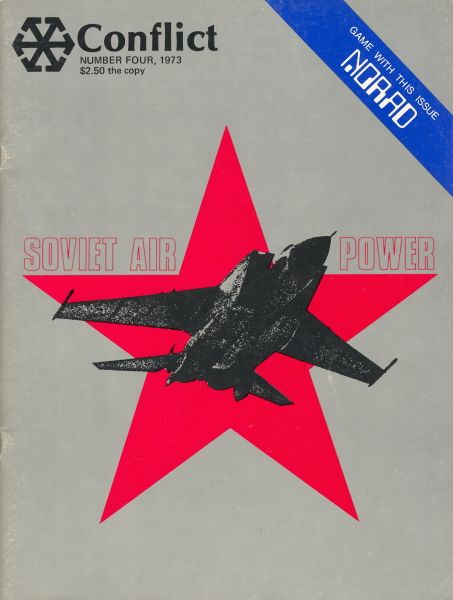NORAD (1973) Board Game
NORAD, short for North American Aerospace Defense Command, is a board game released in in 1973. It is designed for 1-2 players and falls under the categories of Aviation/Flight, Modern Warfare, and Wargame. The game involves grid movement, secret unit deployment, simulation, static capture, and variable set-up mechanics.
Game Components of NORAD
How To Setup NORAD
Setup is straightforward. The U.S. player places SAM sites and decoys face-down on cities, while placing fighter aircraft face-up on any cities they choose. This setup ensures the Soviet player does not know which cities are heavily defended. The Soviet player then enters the map from the northern part with their aircraft or decoys.
Gameplay Mechanics and Game Objective
Player Experience
NORAD is a simple yet engaging game that does not require dice. It is designed for solitaire or two-player gameplay, making it accessible to new wargamers. The game’s simplicity, however, limits its replayability. Players must strategically use decoys and defenses to outmaneuver each other, creating a tense and realistic simulation of a nuclear conflict.
Pros
Cons
Personal Thoughts on NORAD
NORAD is an excellent introduction to wargaming, particularly for those interested in the Cold War era. It is a fun, if somewhat simplistic, game that can be enjoyed by wargamers of all levels. While it may not offer the complexity and depth sought by experienced players, its historical significance and straightforward gameplay make it a valuable addition to any wargaming collection. If you’re looking for a game to introduce someone to the world of wargaming or to experience a piece of gaming history, NORAD is a good choice.
We are supported by our audience. When you purchase through links on our site, we may earn an affiliate commission, at no extra cost for you. Learn more.

